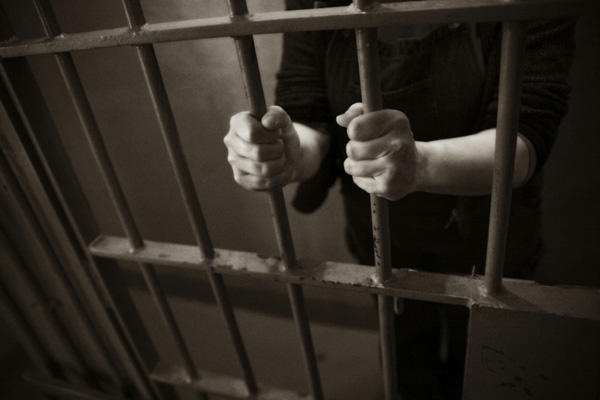The Bureau of Justice Statistics reports there are approximately 107,400 veterans in state or federal prisons. What happens to a veteran's benefits if they are imprisoned?
The following is a summary of how imprisonment affects veterans benefits:
Can a Veteran Receive Retired Military Pay While in Prison?
Generally, yes. Being convicted of a crime almost never jeopardizes a federal pension – the rare exception to this rule are charges relating to criminal disloyalty to the United States: espionage, treason, sabotage, etc.
Is an Imprisoned Veteran's Family Still Eligible for Tricare?
Yes, retirees who have Tricare For Life in conjunction with Medicare are eligible to maintain their Tricare coverage. One of the requirements for Tricare For Life is that you maintain Medicare Parts A & B. Medicare Part B has premiums which must be paid in order to maintain coverage.
Can a Veteran Receive VA Benefits While in Prison?
VA can pay certain benefits to veterans who are incarcerated in a Federal, state or local penal institution. However, the amount they can pay depends on the type of benefit and reason for incarceration.
How Will Imprisonment Affect the Payment Of:
VA Disability Compensation
VA disability payments will be reduced beginning with the 61st day of imprisonment for a felony. Those receiving disability at the 10% rate will see their rate cut in half while incarcerated. Anyone receiving a monthly VA disability payments for a disability rating of 20% or more will see the monthly payment drop to the 10% rate while incarcerated.
Note: Compensation payments will not be reduced for those participating in a work release or halfway house program.
Once released, the benefits will resume. VA may require a new medical examination to see if the disability has changed.
VA Disability Pension
Those who are imprisoned in a Federal, State or local penal institution as the result of conviction of a felony or misdemeanor, will see VA pension payments end on the 61st day of imprisonment.
Education Benefits
Those incarcerated for other than a felony can receive full monthly benefits. Convicted felons residing in halfway houses or participating in work-release programs also can receive full monthly benefits.
Those incarcerated for a felony can be paid only the costs of tuition, fees, and necessary books, equipment, and supplies.
VA cannot make payments for tuition, fees, books, equipment, or supplies if another Federal State or local program pays these costs in full. If another government program pays only a part of the cost of tuition, fees, books, equipment, or supplies, VA can authorize payment for the remaining costs.
VA Medical Care
While incarcerated veterans do not forfeit their eligibility for medical care. Current regulations restrict VA from providing hospital and outpatient care to an incarcerated veteran who is an inmate in an institution of another government agency when that agency has a duty to give the care or services.
However, VA may provide care once the veteran has been released from the penal institution.
Can Dependents Get Any of the Veterans Benefits Withheld Due to Imprisonment?
VA can take all or part of the amount of compensation an incarcerated veteran is not receiving and apportion it to their spouse, child or children or dependent parents on the basis of individual need. Family members should contact the nearest VA regional office for details on how to apply. They will be asked to provide income information as part of the application process.
Will Benefits Be Automatically Resumed When Released from Prison?
Normally, a veteran's VA benefits resume once they are released from prison. However, the veteran must notify VA of their release from incarceration within one year of being released. If the veteran notifies the VA at any later date, benefits can only be restored for up to 12 months prior to the the notification.
VA is working with the Department of Justice, state agencies and the National Reentry Resource Center to automate the notification process which will allow a veteran's benefits to resume as quickly as possible following their release from incarceration.
Depending on the type of disability, VA may schedule you for a medical examination to see if your disability has improved. You will need to visit or call your local VA regional office for assistance.
Does the VA Offer Any Programs for Incarcerated Veterans?
While VA cannot provide legal services it does host free legal clinics for veterans at many VA medical centers, as well as other programs to assist veterans who have either gotten into trouble with the law, or are at risk to.
Veteran Justice Outreach (VJO) Initiative
The Veteran Justice Outreach program is designed to help veterans who are homeless or at risk for homelessness by offering them access to VA benefits and by helping them work with the criminal justice system.
The Health Care for Re-Entry Veterans Program
The Health Care for Re-entry Veterans Program is designed to help incarcerated veterans successfully reintegrate back into the community after their release. The program works with veterans while they are incarcerated, so they can plan for re-entry themselves. The program's primary goal is to prevent newly-released veterans from becoming homeless once they are reintegrated back into the community.
Free Legal Services
The VA also works with State Side Legal to help veterans locate free or low-cost legal services.
For more information call toll-free 800-827-1000, or visit the VA website.
Stay on Top of Your Veteran Benefits
Military benefits are always changing. Keep up with everything from pay to health care by subscribing to Military.com, and get access to up-to-date pay charts and more with all latest benefits delivered straight to your inbox.












